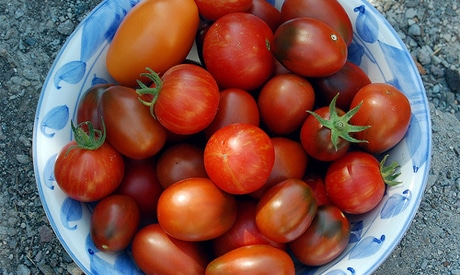
Elevated blood pressure is an epidemic. In the United States alone, about one-third of adults have high blood pressure (hypertension), according to the American Heart Association, and that does not include the growing number of children and adolescents who have the disease as well. Since hypertension is an important risk factor for stroke, heart disease, diabetes, and other serious health problems that can lead to significant disability and death, finding effective ways to lower blood pressure is critical.
Read about preventing high blood pressure
Drugs are one approach, but lifestyle changes can be far more effective and safer. One of those lifestyle modifications may be the addition of lycopene. This phytonutrient is a pigment that gives certain fruits their red color, but it also is a potent antioxidant. Lycopene is perhaps best known for being found in high levels in tomato products, but lesser amounts are present in raw tomatoes, watermelon, pink grapefruit, and guava.
Lycopene and Blood Pressure Study
The latest study of lycopene and blood pressure was a meta-analysis that included six studies. The two authors who evaluated the studies determined that at least 12 milligrams daily of lycopene lowered systolic blood pressure (but not diastolic blood pressure) by nearly 5 mmHg, which is similar to the effect of many blood pressure medications. The systolic value refers to the contraction of the heart while the diastolic figure refers to the filling of the heart with blood.
When the authors conducted an analysis of a subgroup of the study participants, the results indicated that lycopene could effectively reduce systolic blood pressure in people with prehypertension (120-139 mmHg/80-89 mmHg) and hypertension (140/90 mmHg and higher). The higher the dose of lycopene, the greater the reduction in blood pressure.
One of the reviewers, Xinli Li of Soochow University, pointed out that “hypertension is now a burden for both individuals and society,” and that because antihypertensive drugs are associated with significant side effects, “dietary intervention is now more popular.”
In fact, many studies have shown that lifestyle modifications such as the DASH (Dietary Approach to Stop Hypertension) diet and Mediterranean diet, regular exercise, stress management, and not smoking are effective ways to reduce blood pressure without the need for drugs. Healthcare providers need to share with their patients the results of positive studies such as this one and others that highlight the benefits of natural approaches to lowering blood pressure and encourage a nondrug treatment plan as a first line of defense.
Try these 20 Recipes for Summer Tomatoes
For example, there is evidence that drinking beet juice lowers blood pressure. Another dietary approach involves including more potassium in your diet, a nutrient in high levels in bananas and other fruits and vegetables. Some research has suggested egg whites can help bring blood pressure down, while the relationship between exposure to sunlight (and thus vitamin D) and a healthier blood pressure has gained considerable attention recently as well.
If you or a loved one has prehypertension or hypertension, making adjustments to your lifestyle, such as the addition of lycopene along with other steps, could be the only prescription you need.
Photo Credit: statelyenglishmanor










